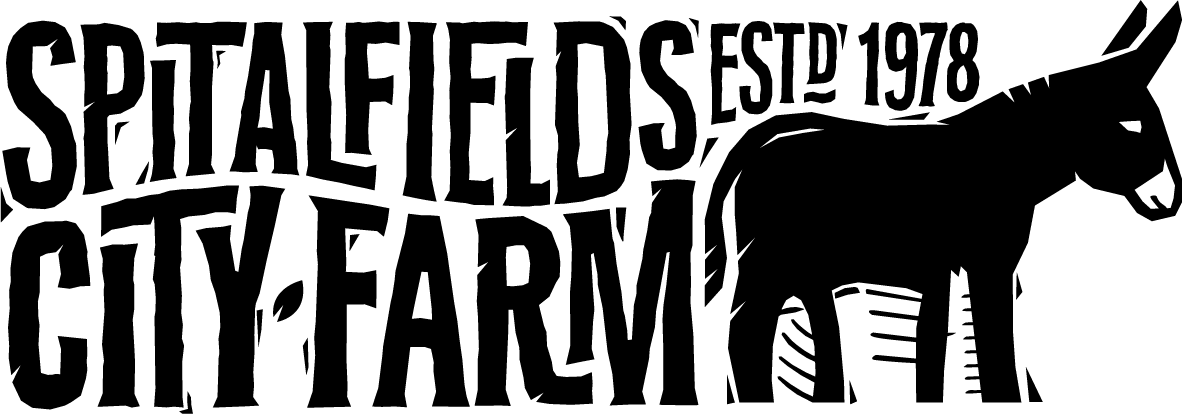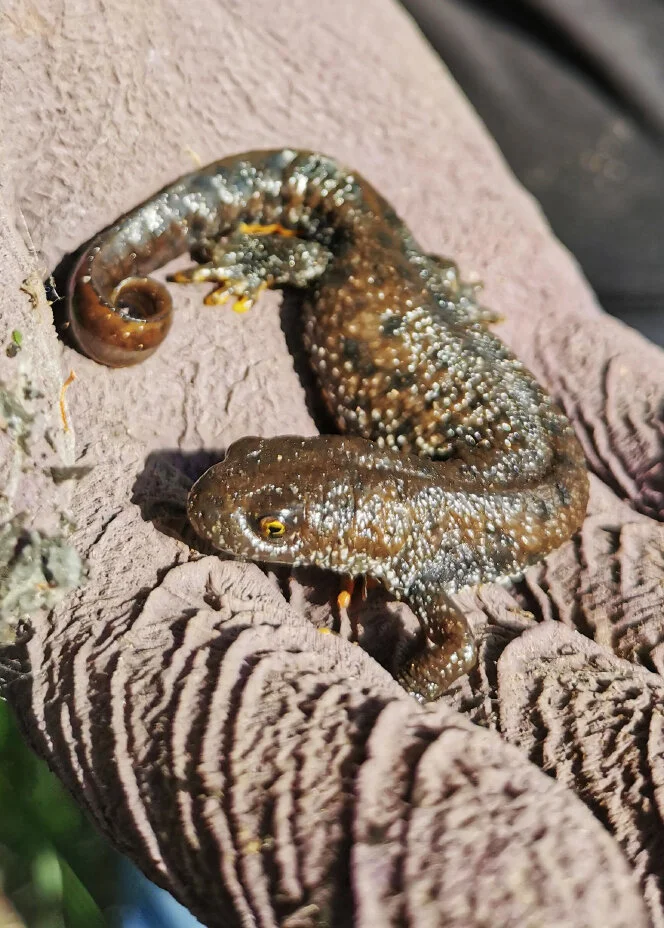Farm Wildlife
By Emily Millhouse, Froglife
Amphibians are suffering from global declines, meaning that many species are threatened with extinction, so the work restoring ponds and other habitats for amphibians is vital.
This newt was handled under license, please do NOT pick them up - just spot, watch and enjoy
Spitalfields City Farm is a unique position that although existing in a densely urbanized area we have a variety of wild spaces alongside our farming spaces. A particular species that benefits from the farm’s wildlife ponds is the Great Crested Newt, a European protected species. Great Crested Newts have been on Earth for around 40million years, and during that lifetime they have suffered from a variety of human impact including loss of habitat, pollution, disease threat and climate change.
The latter affecting them by an increase in warm and wet winters which may reduce the body condition of amphibians resulting in poorer breeding the following year; drier periods in spring and summer may result in ponds drying more quickly, preventing larvae from metamorphosing.
The importance of habitat maintenance, like removing encroaching vegetation and increasing the biodiversity of plants in the pond, will help the Great Crested Newt population to flourish among many other animals that use ponds in nature.
Other species recently observed after recent pond works included: smooth newts, azure damselfly, small red damselfly, large red damselfly, Buff tailed bumblebee, common bumblebees, hoverflies, common blue butterfly, peacock butterfly.
Want more on the Great Crested Newt? Find out how to identify them and read about their courtship dance on Froglife

